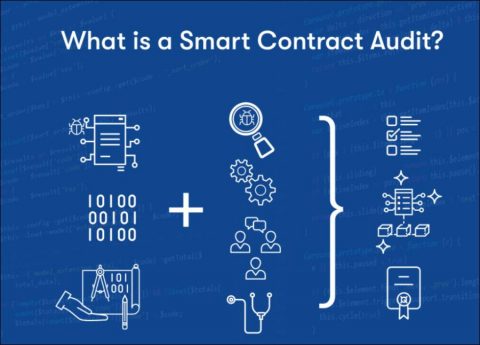Smart Contracts in financial markets, especially in the cryptocurrency market, are actually computerized transaction protocols.
With the introduction of blockchain technology into our lives, contracts such as transactions between parties, agreements, legal texts are written into code lines; middlemen are removed and bureaucratic processes of contract partners are shortened, offering both time and financial savings. Blockchain technology has brought with it; Contracts established with a decentralized, open-source, effective and transparent structure are recorded in the database with a structure that can be verified by anyone, cannot be changed later, and are permanently recorded.
As a result of the perfect writing of the established mathematical modeling, that is, the algorithm, it also allows human error to be minimized. Again, if the algorithm has a perfect structure, some users in the database can be given the opportunity to access the contract with a private key, and the security and confirmability of the contracts will be ensured by ensuring that participants with a public key can also log in to the database.
With the widespread use of smart contracts, commission and bureaucratic costs will be reduced in disputes between the parties. With the ease of verification in blockchain technology, parties such as banks and some credit institutions are not included in the process, and the loss of time, operational and security risks that may arise from the submission of documents such as minutes, documents, files, e-mail records, and the costs that may arise within their sharing are prevented. Again, it is among the biggest advantages that we will encounter.
Smart Contract Features
In the simplest language, we can define smart contracts as self-executing electronic scripts generated in a computer environment. To make it even simpler; It is the set of commands that will operate in the event that the event within the scenario occurs.
The first development for smart contracts was the digital mechanism Nick Szabo called Bitgold in 1998, which includes smart contracts. Although it was a failed project, it contained many features of today’s blockchain technology. Today, especially Bitcoin, Ethereum, Ripple and many other cryptocurrencies have infrastructure built on different algorithms and smart contract models on which they are based.
As for the use of smart contras; Although governments, regulatory and supervisory organizations, and financial giants around the world, especially banks, acted cautiously against cryptocurrencies, they could not remain indifferent to the revolution brought by the blockchain technology behind them. To illustrate, the Depositary Trust and Clearing House (DTCC) and the four major banks—Bank of America Merrill Lynch, Citi, Credit Suisse, and J.P. They successfully processed a blockchain credit default swap developed by Axoni using Morgan-smart contracts. It is among the known examples that Russian Sberbank is testing the Ethereum blockchain.
If we consider the negative aspects of smart contracts; Since it is a new technology, we can say that ensuring the perfection of the algorithm is pregnant with question marks. In addition, the difficulty of controlling smart contracts by governments in today’s conditions is another question mark.
As smart contracts are developed alongside cryptocurrencies, they are being applied more and more in the world of finance and banking. However, as well as financial markets; The application of blockchain technology in the fulfillment of law, real estate, health and some public services promises solutions to prevent many grievances, congestion and financial losses in these areas in daily life.
Visits: 65




